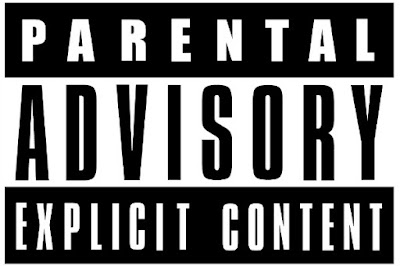Censorship is the suppression of speech, public
communication or other information which may be considered objectionable,
harmful, sensitive, politically incorrect or inconvenient as determined by
governments, media outlets, authorities or other groups or institutions.
Censorship

The parameters of the term censorship have been changed and
manipulated very much over the years. Television and movie ratings have become
more lenient against violence and indiscretion because these things are now
seen as entertainment. Is this appropriate for our youth? Should children be
exposed to these images so early on? How does censorship in the media affect
adolescents? Children are the future of our society and need to have
some understanding of real world occurrences. Ultimately, censorship can only
be determined by the parents. The media cannot filter every bit of controversial
images.
The government can retain people from seeing content in the
media by eradicating it and only letting the public see what the government
want them to see. Censorship can happen on a massive level like that or on a
more local level where religious school remove ‘The Big Bang’ from the school
curriculum so the children don’t have different beliefs on how the Creation
story. Censorship has loads of different
areas from black inappropriate content to removing content so people only know
one way or limits their opinions on something. Censorship can be editing parts
from television/TV shows, prevention of advertising, promote/restrict
political/religious views, prevent slender and libel. Censorship is a good
thing especially for protecting children. In our society we are in a digital world
and children, from a very young age, are using the internet and because of this,
children are being exposed to material that they can access easily that is
inappropriate for their age for example damaging to them growing up mentally,
but how do we know what is “too much censorship” and do we actually need it?

The Chinese government is just one example of the
authorities going too far in regards to censoring their media. The Chinese
government has long kept tight reins on both traditional and new media to avoid
potential subversion of its authority. Its tactics often entail strict media
controls using monitoring systems and firewalls, shuttering publications or
websites, and jailing dissident journalists, bloggers, and activists. In
comparison to the UK where British citizens have a negative right to freedom of expression under the common law. In
1998, the United Kingdom incorporated the European
Convention, and the guarantee of freedom of
expression it contains in Article 10, into its domestic law under the Human Rights Act.
Overall, it can be argued that
censorship is needed to a certain extent for example; protecting children of a
certain age from violence, porn, drugs etc is something that should be carried
out as children of particular ages should not be exposed to that through TV
shows or the internet but instead should be educated about it in schools or by
their parents. However censorship can be used too excessively in the instance
of China and North Korea for example North Korea’s state-run press is the most
repressive media environment in the world according to Freedom House, an independent
media watchdog organisation. The government owns all the media, does what it
can to regulate and censor all communication and limits the North Korean
people’s ability to access information. There is no free internet, and
accessing contraband communication is seen as a “crime against the state” and
can result in prison, a stint in a labour camp and even death.
 Even good ol' British boy - Danny Dyer had something to add. The idea of adding a popular face and using their star power makes the story more enjoyable to read especially if their views match yours and in this case, Danny Dyer is tweeting what everyone is thinking.
Even good ol' British boy - Danny Dyer had something to add. The idea of adding a popular face and using their star power makes the story more enjoyable to read especially if their views match yours and in this case, Danny Dyer is tweeting what everyone is thinking.

































